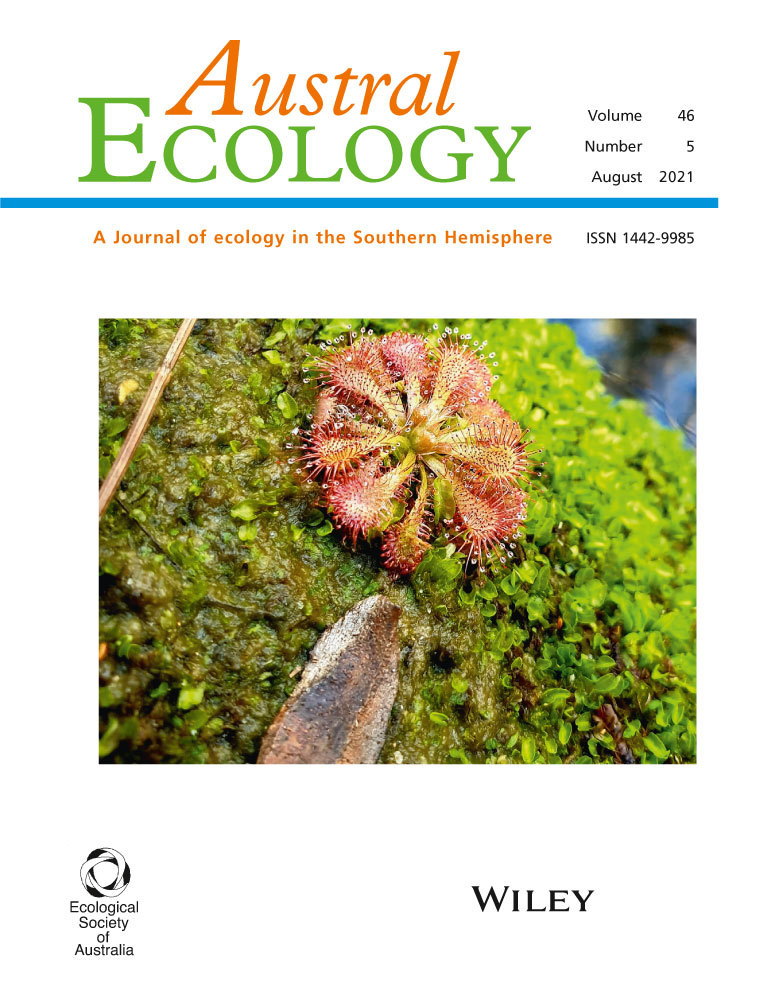Ver ítem
- xmlui.general.dspace_homeCentros Regionales y EEAsCentro Regional Patagonia NorteEEA BarilocheArtículos científicosxmlui.ArtifactBrowser.ItemViewer.trail
- Inicio
- Centros Regionales y EEAs
- Centro Regional Patagonia Norte
- EEA Bariloche
- Artículos científicos
- Ver ítem
Host plant choice and effect of temperature on feeding behaviour of Perzelia arda (Lepidoptera: Depressariidae), a leaf-tying larva, on Nothofagaceae from the Andean Patagonian forest
Resumen
Environmental temperature may cause changes in the physiology and feeding behaviour of herbivorous insects and, consequently, in the damage they can cause. In the Andean Patagonian forest, an eco-region dominated by trees of the Nothofagaceae family, it is common to find the leaf-tying larvae Perzelia arda consuming seeds and leaves of several species of Nothofagus genus. The pattern of damage caused by P. arda in these forests varies from year to year
[ver mas...]
Environmental temperature may cause changes in the physiology and feeding behaviour of herbivorous insects and, consequently, in the damage they can cause. In the Andean Patagonian forest, an eco-region dominated by trees of the Nothofagaceae family, it is common to find the leaf-tying larvae Perzelia arda consuming seeds and leaves of several species of Nothofagus genus. The pattern of damage caused by P. arda in these forests varies from year to year and even within seasons. We hypothesise that this phenomenon may be related to an increase in the ambient temperature of this region. The purpose of this work was to determine the host
plant preferences of P. arda among four species of Nothofagus genus and to evaluate whether temperature influences the feeding behaviour of the larvae. We first evaluated the food preferences of P. arda by means of twochoice tests, using leaves of N. alpina, N. obliqua, N. antarctica and N. pumilio as stimuli. Secondly, we evaluated the effect of three levels of temperature on herbivory. Our results demonstrated that P. arda feed on and equally choose the four species of host plants studied. Temperature influenced the feeding behaviour of the larvae; high levels of consumption of N. obliqua occurred at 6°C and differed for the other host plant suggesting that consumption also depends on the type of food resource. In conclusion, the feeding behaviour of P. arda depends on
a complex interaction between host plant and abiotic conditions. Further studies are required for a better understanding about the use of resources by this native insect, as well as the ecological consequences.
[Cerrar]

Autor
Capobianco, Julio Nahuel;
Pietrantuono, Ana Laura;
Aparicio, Alejandro Gabriel;
Fernandez Arhex, Valeria Cristina;
Fuente
Austral Ecology (First published: 13 August 2021)
Fecha
2021-08
Editorial
Wiley
ISSN
1442-9993
Formato
pdf
Tipo de documento
artículo
Palabras Claves
Derechos de acceso
Restringido
 Excepto donde se diga explicitamente, este item se publica bajo la siguiente descripción: Creative Commons Attribution-NonCommercial-ShareAlike 2.5 Unported (CC BY-NC-SA 2.5)
Excepto donde se diga explicitamente, este item se publica bajo la siguiente descripción: Creative Commons Attribution-NonCommercial-ShareAlike 2.5 Unported (CC BY-NC-SA 2.5)

